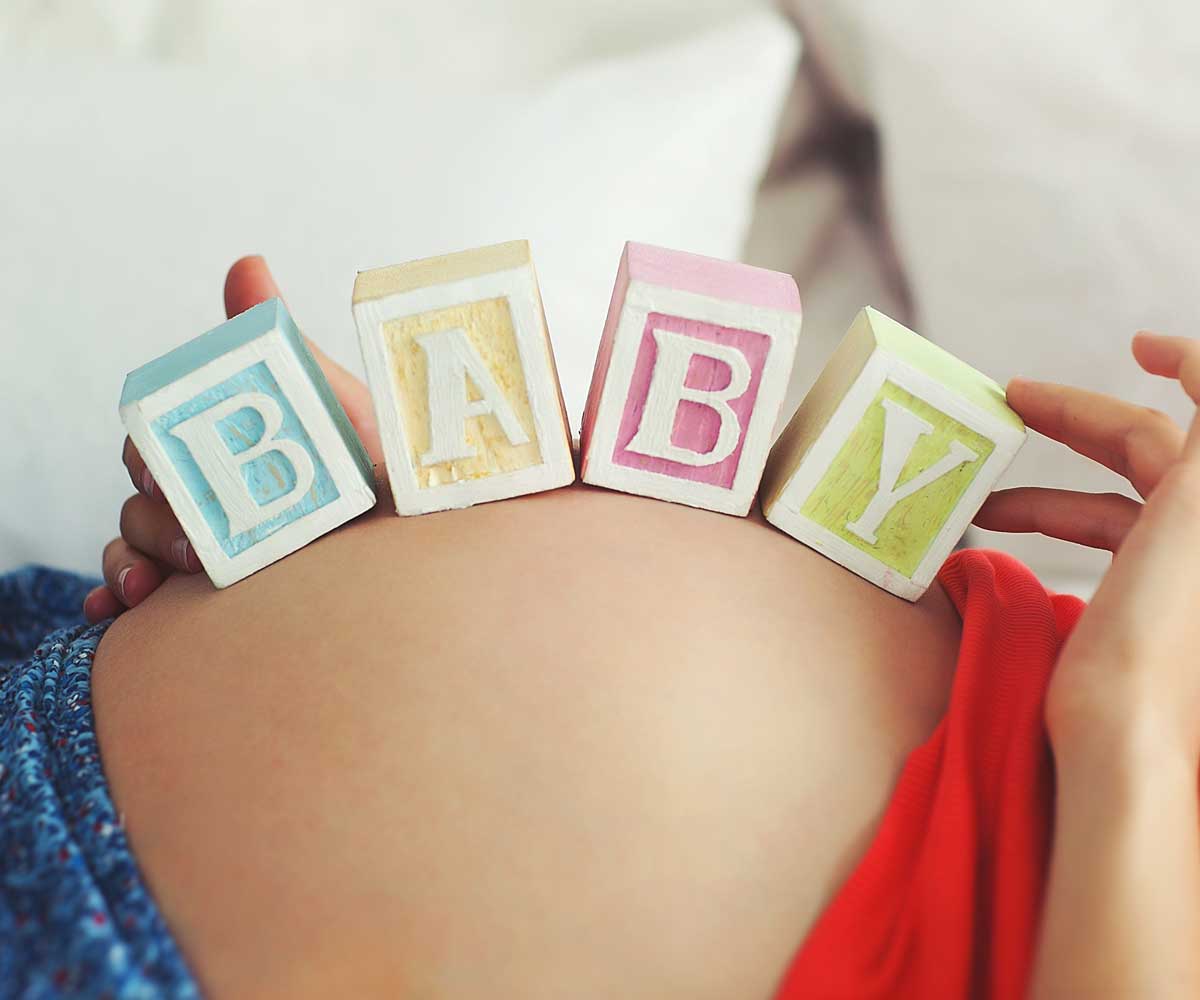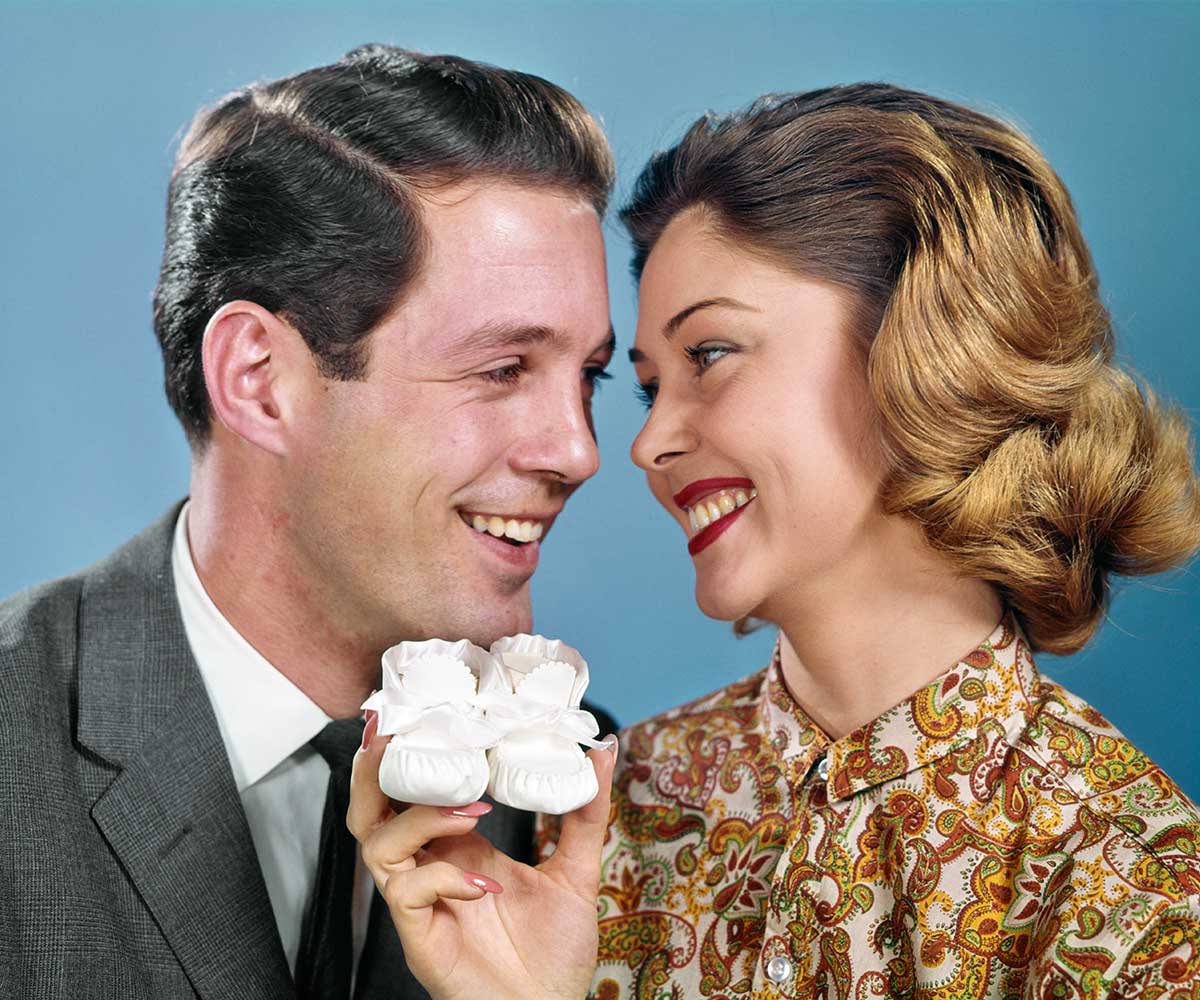When broadcaster Zoe Marshall announced she was embarking on a radical diet in a bid to get pregnant, it made front-page news. There was widespread astonishment – and a fair measure of condemnation – that a healthy, 60kg woman would resort to such extreme measures.
“I found quite a bit of judgement – even from friends – but I was doing it for the end game,” explains Zoe, who silenced the naysayers when she revealed she and rugby league star husband Benji are expecting their first child.
“It was a short-term thing for a long-term goal. While I am okay with IVF, I couldn’t go into it without doing everything else physically possible to get pregnant.”
In essence, the 33-year-old was simply doing what tens of thousands of Kiwi women are doing every year – giving herself the best possible chance of starting a family. For those battling infertility, that increasingly involves looking beyond conventional science.
Although most women would like to think making a baby simply involves having sex at the right time of the month, the fact is that by the age of 38, more than one in four Kiwi women have experienced infertility. Anyone who has tried unsuccessfully to get pregnant for more than a year falls into this category, and it’s an issue that Nicola Bitossi, who runs support charity Fertility New Zealand, says is on the rise.
“Even over the past year we’ve had double the number of enquiries.”
Perhaps more unsettling is research showing that of those couples who struggle to conceive, more than half are classed as having ‘unexplained infertility’ – meaning there’s no clear-cut medical reason behind it.
When overseas studies show that everything from cellphone radiation to a high consumption of soy could be the reason for the ‘infertility epidemic’, it’s little wonder people are questioning whether it’s modern life that’s shattering our baby dreams. This has prompted many couples to explore more holistic solutions. But although they might be more affordable and less daunting than traditional medical interventions, are they any more effective?
Drastic dieting
Zoe thought the natural route was one worth heading down. The Kiwi media personality has severe endometriosis, a condition that sees uterine tissue grow outside the uterus and can cause infertility. Having tried unsuccessfully to get pregnant at the end of 2016, Zoe heard about 101 Wellbeing, a Chinese medicine programme run by Dr Shuquan Liu, who’s credited with Australian prime minister Malcolm Turnbull’s 14kg weight loss.
The programme claims to completely overhaul the way your organs operate, enabling them to function optimally. It involves a two-week fast during which boiled water, black tea and Chinese herbs are consumed – offering as little as 200 calories per meal, three times a day.
Dr Liu, who has plans to open a clinic in New Zealand, claims the controversial diet prepares the body for conception, saying that afterwards “the whole immune system lifts and that’s your best chance to get pregnant”.
“I thought it was radical and definitely unusual,” admits Zoe, who was motivated by her love of a challenge and “the hope of being the healthiest version of me that could fall pregnant”.
And while the former host of TV3’s The Great Food Race found it a “horrific process”, during which she lost 7kg while battling nausea, excruciating cramps and migraines, it worked.
Not only did it moderate her periods, sort her digestive issues and lessen her anxiety, but it achieved the thing she wanted more than anything.
“It was life-changing for me,” says Zoe, who completed the fast in January 2017.
“I challenged [Dr Liu]; I said, ‘I want to be pregnant in June,’ and he said, ‘That’s not a challenge.'”
Sure enough, on her 33rd birthday, the Brisbane-based radio star discovered she was carrying a baby, which is due in February.
Liu, who says his pregnancy success stories include a 50-year-old using donated eggs and a woman who previously failed in 20 IVF attempts, was always confident of success with Zoe. He believes the infertility issue for many of his patients is the fact that even those with a healthy BMI are often “holding too much flab in their abdomen area”.
“Western medicine doesn’t see that as a problem, but we see that as a blockage,” he adds.
Herbs & hypnosis
Although few Kiwi practitioners offer such an extreme approach, there are plenty who focus on diet in their quest to help their clients conceive. Yvonne Gattung runs the rather optimistically named fertility service No Baby No Pay, through which she offers dietary and lifestyle advice, as well as supplements and herbal treatments. The registered naturopath, who has the same pragmatic approach as her sister, businesswoman Theresa Gattung, believes the key is getting mind and body ready before trying for a baby.
“It involves looking at all aspects of a couple’s life,” she says, adding that lifestyle choices are often the culprit in infertility.
“Reducing stress, eating better, thinking about where they carry their phone on their body – that should be the starting point for everybody.”
After 20 years working in this area, she doesn’t believe in unexplained infertility – “there’s always an explanation, you’ve just got to dig deeper and find it” – and is confident herbs can resolve any issue.
“Whether it’s low sperm count or endometriosis, herbs can correct that.”
The Hamilton-based fertility specialist also does lunar calculations based on research by gynaecologist Dr Eugen Jonas, which suggests ovulation can be triggered when the moon is in the same lunar phase as it was when you were born, regardless of where you are in your menstrual cycle.
It might sound unlikely, but on the whole, Gattungs’s approach appears to be effective – judging by her success rate.
“It’s over 80 per cent,” says Gattung, who also offers guidance on influencing the baby’s sex. “It’s just a really positive way that I can contribute and change people’s lives.”
Her programme employs similar principles to those of the UK’s Foresight Preconception Care, which reports that of more than 1500 couples who completed their full programme between 2002 and 2009, almost 90 per cent had babies.
No Baby No Pay is far from the only natural programme boasting high levels of success. Former nurse Andrew Hardwick offers fertility hypnosis in Wellington. HypnoFertility works on the belief that psychological concerns can affect our physical makeup. It suggests those who fear being a terrible mother or who are concerned about passing a genetic issue onto a child may unconsciously alter their body chemistry to prevent pregnancy – an issue hypnosis is said to fix.
“A lot of people know someone who failed to have children and so adopted, then all of a sudden became pregnant,” says Hardwick. “So what changed? It’s down to that belief, ‘Yes, I can be a parent’. It shows something is there that can be shifted.”
Hardwick admits he’s often the last resort for people who have exhausted IVF and are desperate for a child, but says he has a success rate of “about four out of five”.
Recent research into the effectiveness of HypnoFertility is limited, but a study published in Fertility and Sterility tracked infertile women who participated in a mind/body programme. Researcher Dr Alice Domar reported that 55 per cent of the participants became pregnant, compared to 20 per cent in a control group.
Although these statistics are obtained using relatively small numbers of people, they are compelling – especially when considered alongside cost. This varies hugely, depending on the method and the practitioner, but naturopaths start at $70 for an initial consultation, while Hardwick’s basic programme is $900.
Gattung, who in most cases offers a refund if her treatment is unsuccessful, charges an initial fee of $1000 – and nothing more except the cost of medications until the pregnancy is confirmed, when graduated payments kick in. Liu’s plan is around the $5000 mark.

Facing the sceptics
There’s no doubt stigma taints alternative options. Rebecca Ngapo, who was told by doctors she had a 2 per cent chance of getting pregnant without medical help, says her decision to explore holistic solutions was initially met with skepticism from many.
“People were like, ‘That’s a bit weird,'” says the 35-year-old primary school teacher, who enlisted the help of a naturopath after her first round of IVF failed. “I’ve been called a hippie and all sorts of stuff, but what wouldn’t you do? Once you find out about it, it’s a no-brainer – it just makes sense.”
The combination of Rebecca’s low egg reserves and her husband Steve’s diminished sperm count made natural conception unlikely but, nevertheless, the couple got pregnant shortly after starting on herbs prescribed by their naturopath. Sadly, Rebecca miscarried.
Having left Auckland and moved to Otorohanga in the Waikato, in May 2016 the couple turned to Gattung. Although they already had a healthy lifestyle, they wholeheartedly embraced her suggestions – which included eliminating caffeine, removing all electronic devices from the bedroom and forgoing any food from cans. Rebecca went on an energy-shifting retreat to clear her head and began to chart her lunar cycle. She believes it was during a lunar ovulation that she conceived her daughter, born last year.
“After doing that first round of IVF, I didn’t want to do another – it seemed strange to force my body into something it clearly wasn’t ready for,” says Rebecca.
Auckland lawyer Miriam Arnet also found the natural route worked for her. With no obvious reason why she hadn’t got pregnant after a year of trying with her husband Gavin, the 39-year-old engaged in a pre-conception regime that cut out processed food and alcohol. Miriam switched to natural beauty, skincare and cleaning products, and took herbs and supplements.
“I had a degree of scepticism,” admits Miriam. “And while I questioned whether some things would make that much of a difference – like no TV in the bedroom – I thought, ‘I don’t have a baby now, I’d like one, what’s the harm?'”
Less than five months later, she was pregnant with twins Michaela and Mae.
Of course, natural options can be used alongside medical ones. Acupuncture, for example, which both Gattung and Liu recommend, has been shown to double the chances of IVF success. A study released in 2016 by Homerton University Hospital in London found those who used the ancient practice along with IVF had pregnancy rates of 46.2 per cent; among those who didn’t use acupuncture, the success rate was 21.7 per cent.
For those seeking a more natural route, the recommendation is to exercise caution. Gattung suggests couples inter-ested in natural fertility treatments go to an experienced practitioner.
“Don’t go to a health shop or online and just buy herbs; go to someone who understands fertility, because it’s a complicated, involved area.”
A quick Google search will produce dozens of ‘fertility experts’, but because natural medicine in New Zealand is unregulated, there’s little to prevent cowboys from taking advantage of the vulnerable.
“Check out forums – and take recommendations from people who have had success,” suggests Rebecca.
Nicola Bitossi of Fertility NZ says, “Our advice would be to look at the research and consult your usual practitioner.”
Quirky fertility solutions from around the world
Urine
Tribes in Zimbabwe are adamant a mixture of baboon urine and beer will increase chances of conception. The hormones from the baboon urine are thought to be the key.
Holy water
In Istanbul, those wanting help with their fertility visit the Weeping Column, which appears to ‘weep’ holy water. They place their thumb in a hole in the column and rotate it as far as possible.
Going for a dip
In Ettigen, Switzerland, men cover themselves in branches from beech trees and, disguised as bushes, sneak up on women and dunk them in a well. The ritual is said to make women fertile.
Take a seat
The annual Festival of the Steel Phallus in Kawasaki, Japan, sees those hoping to start a family sit astride a huge model penis.
Undies
For the Yansi people in the Congo, it’s customary to throw underwear on the roof during a waning moon to increase the chances of conception. The undies are left there until the full moon.


